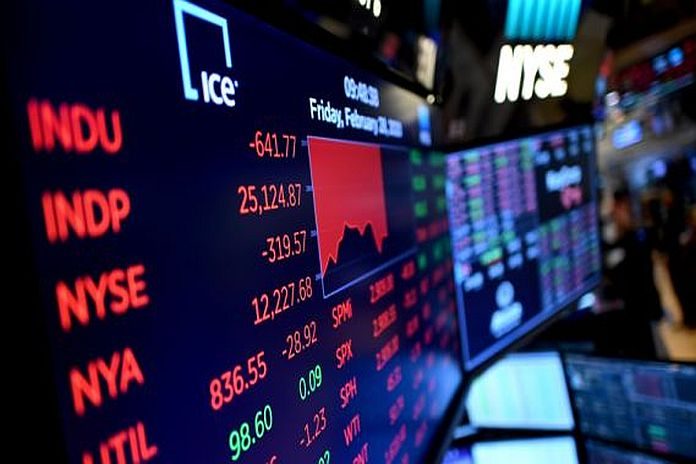By Caribbean News Global ![]()
LONDON, England – The long run of profitability in the travel industry, trade and financial sectors among others are at risk if COVID-19 causes a global slowdown. Economic efficiency declined has worsened with countries struggling to be productive, as the current outbreak continues to develop.
Already there are random shocks in the global economy, meantime government measures such as travel and commercial restrictions will come with economic costs. Other factors include the capacity and capabilities of government, territories and countries’ health care systems. The political cost of inaction or delayed action carries a cost for most governments to contemplate, as COVID-19 spreads in major travel, trade, and financial markets.
“If we’re not able to hold the line in the next week or two, you’re going to start seeing a lot more cases,” said Dr George Rutherford, a professor of epidemiology and biostatistics at the University of California, San Francisco.
However, with no vaccine or treatment available to combat COVID-19, “Now’s the time for businesses, hospitals, community schools, and everyday people to begin preparing,” Dr Nancy Messonnier, the director of the National Center for Immunization and Respiratory Diseases at the CDC, said in a news conference held February 25.
In a joint statement on tourism, the World Health Organization (WHO) and the World Tourism Organization (UNWTO) said they are “committed to working together in guiding the travel and tourism sectors’ response to COVID-19.”
“UNWTO and WHO stands ready to work closely with all those communities and countries affected by the current health emergency, to build for a better and more resilient future.”
Citing cooperation is key; UNWTO and WHO are working in close consultation and with other partners to assist States in ensuring that health measures be implemented in ways that minimize unnecessary interference with international traffic and trade.
WHO did not recommend any travel or trade restriction, working closely with global experts, governments, and partners to rapidly expand scientific knowledge on this new virus, to track the spread and virulence of the virus, and to provide advice to countries and the global community on measures to protect health and prevent the spread of this outbreak.
“Tourism’s response needs to be measured and consistent, proportionate to the public health threat and based on local risk assessment, involving every part of the tourism value chain – public bodies, private companies, and tourists, in line with WHO’s overall guidance and recommendations,” the joint statement said.
At this challenging time, however, concerns eminent over fears of a global slowdown in travel, trade and financial sectors that could hurt profitability. Investors worry about the outbreak’s impact on demand as world markets respond negatively to uncertainty.
The International Air Transport Association (IATA) previously announced the initial assessment of the impact of the Novel Coronavirus 2019 outbreak (COVID-19) shows a potential 13 percent full-year loss of passenger demand for carriers in the Asia-Pacific region.
The current forecast assumes contraction in global air demand of 0.6 percent in 2020 after previously forecasting growth of 4.1 percent. COVID-19 would likely cost airlines globally more than $29 billion in revenue — mostly in the Asia-Pacific region.
The NYSE Arca Airline Index tracks 16 carriers in North and Latin America reported a decline of than 15 percent as of last week Wednesday’s close, putting it on pace for its biggest weekly percentage loss since March 2009. Other airlines have reported weak earning, and or suspended earning report and projections, triggered by a broad slowdown in travel.
With related focus on productivity, lack of investments, and travel restrictions, reorientation and increase output, in turn, has led to a boost for key profit measures.
Central banks are under pressure to cut interest rates. Australia’s central bank is expected to cut rates on Tuesday. The Federal Reserve to cut interest rates at March 17-18, if not earlier.
On Thursday, the Dow Jones Industrial Average plunged nearly 1,200 points. Those losses continued Friday and the index closed the week with a nearly 3,600-point loss. The index hasn’t seen a gain since February 19.
In such environments, leaders should assess whether they are providing enough operations, leadership and advise on efficiency and improve labor-saving/benefits that embrace a culture dedicated to improvement, in the air of COVID-19 risk aversion.





